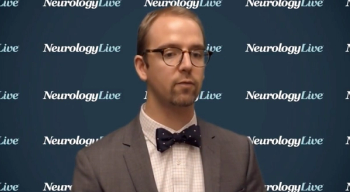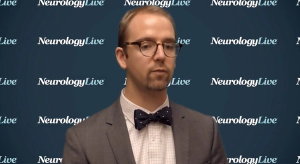
The diagnosis of Parkinson disease may seem straightforward at first, requiring neurologists to rely on their eyes and hands, but the treatment process can present challenges for both physicians and patients.
Clinical Assistant Professor of Neurology; director, Neurology Residency Program; and director, Fellowship in Movement Disorders, Thomas Jefferson University

The diagnosis of Parkinson disease may seem straightforward at first, requiring neurologists to rely on their eyes and hands, but the treatment process can present challenges for both physicians and patients.

The neurologist at Thomas Jefferson University Hospitals discussed the pros and cons of supplemental drugs used to reduce off time in patients with Parkinson disease.

Published: November 4th 2019 | Updated: